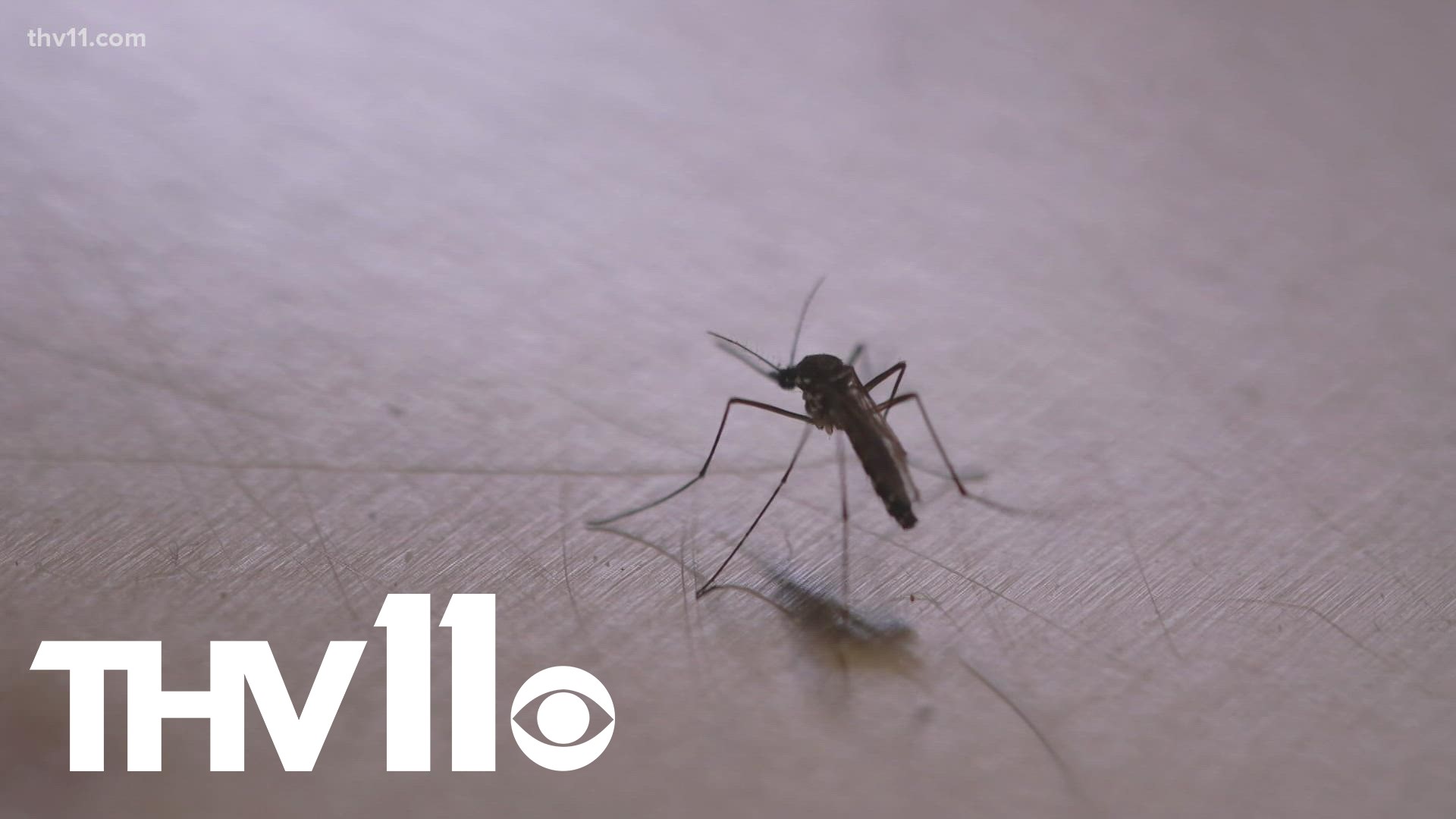LITTLE ROCK, Ark. — Have you noticed more mosquitos in summer? Or perhaps you found yourself swatting the bloodsucking insect away in traditionally cooler months? You’re not alone!
What we think of as “mosquito season” in the Natural State is changing.
“There's evidence that populations are higher earlier and later in the year as well,” said Dr. Emily McDermott, an entomologist at the University of Arkansas.
To understand why this is, it’s important to first understand what makes for prime mosquito conditions.
McDermott and the National Institutes of Health agree that mosquitos thrive in warm and humid weather. But heat and humidity isn’t anything we’re unfamiliar with in Arkansas, so what’s changing?
“As we start to see longer summer type periods, those mosquitoes are going be active for longer during the year, they're going to be able to bite more, they're going to be able to lay more eggs, and that's going to increase their populations as well,” said McDermott.
One key thing that is changing is our climate. Temperature and humidity data from today compared to data from the 1970s shows a modest, but steady rise in both key factors. As a result, we’re adding days to what we traditionally think of as “mosquito season.”
According to Climate Central, a nonprofit climate research organization, this increase has resulted in an increased number of days with prime mosquito weather by 11 days annually in Little Rock, 16 days in Pine Bluff, and 17 more days in Fayetteville.
But warmer temperatures and more humid days aren’t the only thing attributing to the rise in mosquito days. Extreme weather events such as hurricanes and flooding are also playing a role.
"We always see big emergences of mosquitoes associated with kind of these extreme storm events," McDermott said. "And they're creating large amounts of habitat for mosquitoes to develop and they do tend to happen in warmer parts of the year.”
But why does any of this matter? Mosquitos are a sign of summer in Arkansas as much as ice cream trucks and sun burns.
Dr. Laura Rothfeldt, the state public health veterinarian at the Arkansas Department of Health explained these pesky insects are more than just a nuisance, rather a public health concern.
“We have identified Eastern Equine Encephalitis, or EEE, in horses in recent years, in Pulaski County. We do see West Nile Virus, and we do have people that that will get sick with it,” Dr. Rothfeldt explained. "Climate change is happening and whether or not we are contributing to is the debate, but it's certainly happening. And certainly ticks and mosquitoes will follow along with that.

